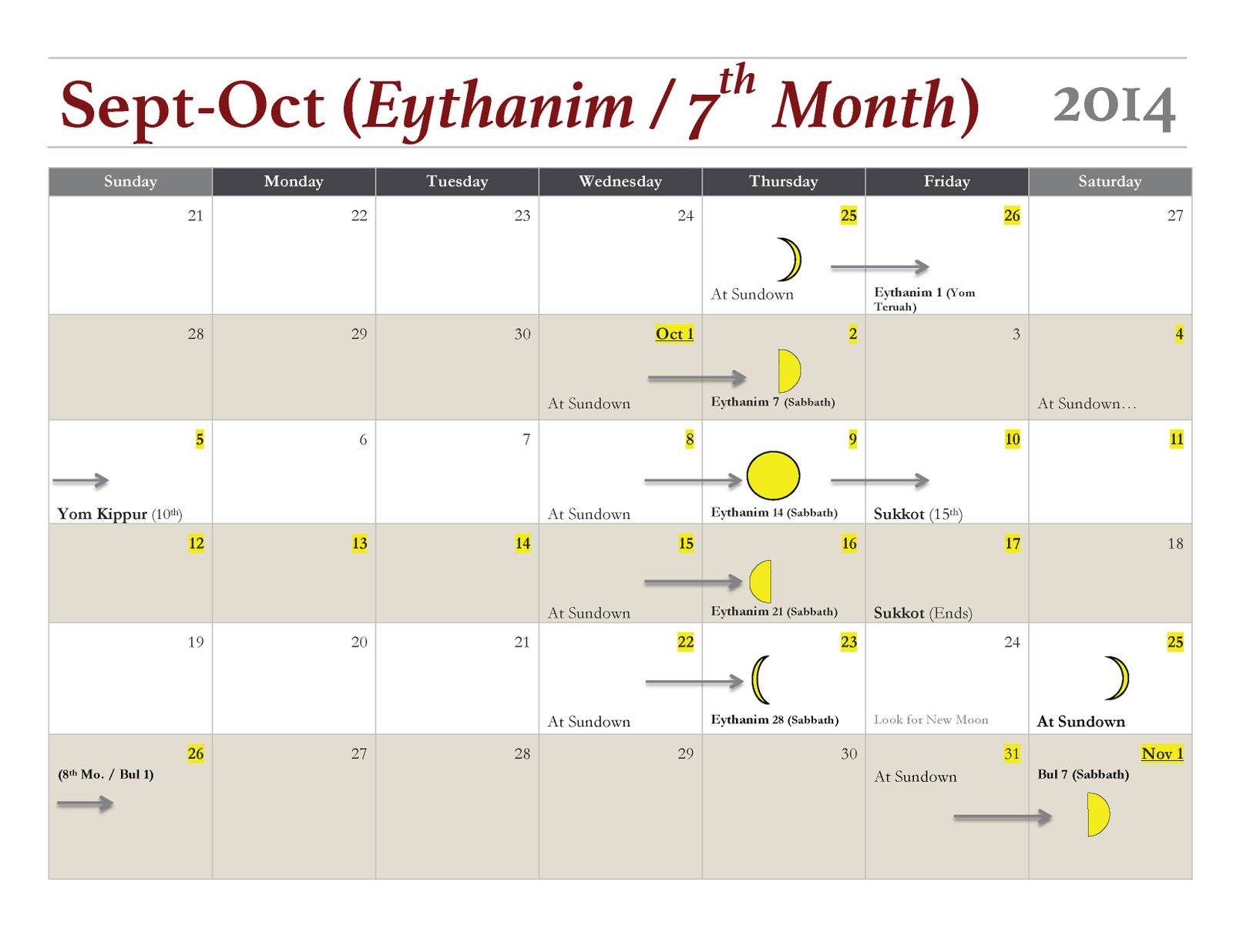When is the Sabbath?
If you are observing the Sabbath from Friday to Saturday, then you are on the correct day for that particular calendric system. However, ask yourself, is this YeHoVaH’s (God’s) calendric system? Is this the calendar He instituted or is this the work of man?
The Sabbath (the one which is widely observed) occurs on the seventh day of the Civil (or Gregorian) Calendar, which is solar-based. The Biblical Sabbath occurs on the seventh day of the Hebrew Calendar, which is lunar-based.
Upon the sighting of the sliver of the New Moon, you will count 6 days from that day. At sundown (at the end of the sixth day) will begin the Sabbath. You will keep the Sabbath for four weeks (on the 7th, 14th, 21st, and 28th). On days 29 and 30, you will look for the New Moon again, and the cycle repeats. It is important to keep in mind that every day of the Civil Calendar will have a chance to be a Sabbath, being that the Biblical Sabbath moves to a different day from month-to-month.
For example, if New Moon (the sighting of the first sliver) was on a Thursday (at sundown of course), then that’s Day One (from Thursday sundown to Friday sundown). Then six days later will be your first Sabbath, which will be Wednesday sundown to Thursday sundown. You will observe the Sabbath for four weeks of Wednesday sundown to Thursday sundown. The night after the last Sabbath, you will then start looking for the next New Moon.
Calendar Diagram
If you notice, on the diagram below, New Moon for the Seventh Month, which is Yom Teruah (“Day of Shouting” or “Feast of Trumpets”) in the Hebrew month of Eythanim (or Tishrei – Babylonian), was on Monday, September 14th, 2014 at sundown to Tuesday, September 15th at sundown. Therefore, the Sabbath for that month was Sunday sundown to Monday sundown, until October 12th (Eythanim 28th). This is what I meant when I said that “…every day of the Civil Calendar will have a chance to be a Sabbath…”
I know at first, to some, this can be quite overwhelming or even confusing, but I would have to credit that to paradigm shift of keeping track of and staying in synch with two separate calendar systems (Hebrew and Civil). However, I reassure you that it gets much easier, to the point second-nature.

